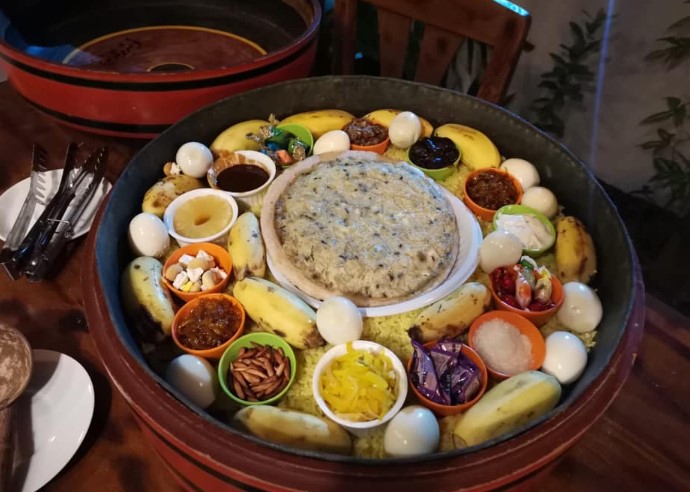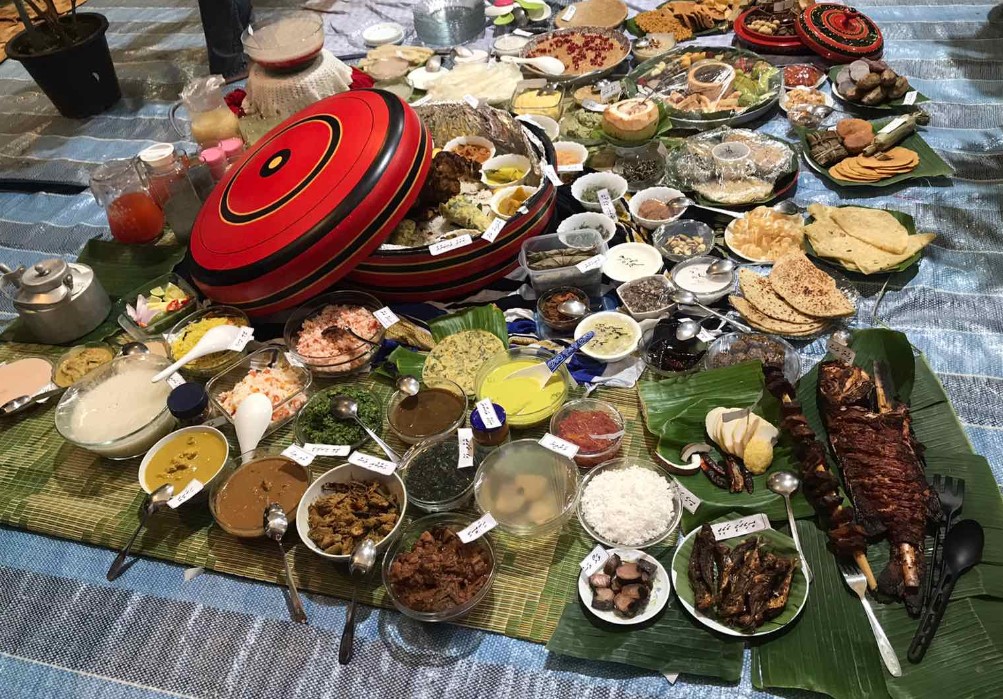When it comes to a culinary adventure of epic proportions, the Maldives offers a gastronomical journey like no other. With a rich blend of diverse cultural influences, the Maldivian cuisine is a delightful fusion of flavors that reflect its historical tapestry. In this article, we delve into the heart of Maldivian food traditions, with a particular focus on a unique culinary experience known as the “Keyn.”
A Mosaic of Flavors
Traditionally, Maldivian cuisine centered around essential ingredients such as coconut, fish, and starches. However, the arrival of ancient traders marked a significant turning point. These traders left an indelible mark on Maldivian cuisine, resulting in a remarkable blend of distinctive flavors that we savor today.

The culinary landscape of the Maldives is not only influenced by the arrival of traders but also reflects the religious and traditional backgrounds of the islanders. Maldivian cuisine is showcased in various ceremonies, where specific dishes take the spotlight, and in other celebrations, a lavish spread of diverse dishes tantalizes your taste buds.

The Keyn Experience: A Culinary Extravaganza
A noteworthy Maldivian culinary tradition, the “Keyn,” is a remarkable journey through the flavors of the archipelago. The Keyn is a communal dining experience, where a large, circular traditional tray is presented, typically containing enough food to feed a group of around 12 people.
This culinary masterpiece comprises a medley of dishes that include rice, curries, side dishes, salads, grilled meats, coconut cream, bananas, rice, breadfruit puddings, and an array of sweet delights. In essence, it’s like enjoying several courses of meals in a mini-buffet tray.
The origins of the Keyn can be traced back to a religious ceremony called “Maaloodhu,” where reciters deliver prayers and benedictions. Initially, the Maaloodhu ceremony was held to celebrate the naming of a newborn, religious festivals, house blessings, and other significant events. The Keyn, with its delectable offerings, was prepared and presented to the reciters and attendees after the ceremony.
Evolving Traditions
In time, the significance of Maaloodhu ceremonies waned, but the tradition of preparing the Keyn persevered. Moreover, the Keyn has evolved to include an even wider array of Maldivian delicacies, making it a truly comprehensive representation of the island’s culinary heritage.
Today, Keyn trays are prepared not only for traditional ceremonies but also for Eid celebrations, social gatherings, and political events. At these events, they are presented to special guests, sometimes with a grand procession. This procession often features the lively accompaniment of Boduberu, a traditional drumming and dance performance, adding a festive touch to the presentation.
Travelers to the Maldives may have the chance to witness or even be honored guests receiving a Keyn tray. Some resorts, hotels, and guesthouses now prepare and arrange Keyn meals for their guests, allowing visitors to partake in this unique culinary experience.
In conclusion, the Keyn feast embodies the heart and soul of Maldivian cuisine. It is a testament to the enduring traditions of the islands and the vibrant tapestry of flavors that make the Maldives a true culinary paradise. Whether you’re a guest at a local ceremony or a tourist experiencing the Keyn in a resort, this Maldivian culinary tradition promises a delightful journey for your taste buds.



